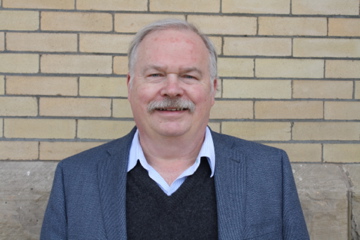Do we really know our professors? Do we really know where they come from or what they did before they began their careers as educators at this university? I don’t believe we do!
Chase Higgins, a history major, tried identifying how he felt about one teacher specifically, Anders H. Henriksson. Higgins stated that one day he would like to become a history teacher at Jefferson High School where his love for the subject initialized and flourished even more while attending Shepherd, where he realized he then wanted to work here as a professor himself one day. He also stated that Henriksson is such a great professor, that he makes his lectures interesting, entertaining and enjoyable.
Beyond just that, Higgins said, “Dr. Henriksson’s content of knowledge is unmatchable, and he is quite a fascinating person once you get to know him.”
Modern Russian studies happens to be what Henrikisson majored in while attending Toronto University in Canada, and he received his PhD by 1978. “Historians don’t have much luck finding jobs, especially in this economy, but for a town like this, it is not so bad,” Henrikisson said.
Currently, Henriksson teaches Modern Russian History, European Women’s History and some WWI history as well. Initially he majored in Russian history and then minored in Medieval history, which then led him to actually teach that subject at Shepherd. After teaching the Medieval history courses, he realized that he enjoyed learning about women in history too, and so he and a few other colleagues opened up a Women’s Studies Program. He is currently recognized as a founder and co-director of the Women’s Studies Program.
Henriksson said he enjoys teaching so much because it is such a rewarding job to have. Watching the students grow and bloom really impacts him because it is a change for the better, both for him and the students. It is an impacting experience for him because it shows him that he really is doing his job correctly. It impacts the students by learning more about the world we live in.
On that note, Henriksson stated, “How can one live in this world without knowing the history behind it; that is why it intrigues me so much, because all the history that has been experience is what evolved us to what we are today. It forces us to place our feet in their shoes.”
Before all of this, Henriksson had no career while in grad school, but after he graduated he worked in Canada for five years, and then after that he came to the United States working for the federal government as a Soviet Union analyst for three years. He knew he wanted to work as a teacher, though; he saw a job opening at Shepherd University, took it, and has been here ever since! A good 29 years he has stayed because of the historical surroundings, the beautiful nature, and the easy going attitude of the town and school altogether.
Currently, Henriksson is working on multiple projects including writing a book about a Red Cross nurse during the Russo-Jap war, another book about comedic works by students, collaborating with a Canadian colleague about WWI, as well as singing for the Choral Arts worldwide.
The book about the Red Cross nurse is being translated by Henriksson, because it was about the war while this nurse was there, what happened while she was there, and why. The journal by this nurse is in Russian dialect so that is why he has to translate it.
The comedic book has been a fun thing for him to do because over the years he has been collecting terrible papers by students and colleagues worldwide to create these humorous books about what people believe history is.
The choral singing is something that he has been doing for numerous years now, and he travels all around the world doing so. He has been to the Kennedy Center, Russia, Canada, as well as other places throughout Europe singing for this group.
Besides that, Henriksson said, “I have worked with a multitude of people around the world, and I have enjoyed working with all of them including the people I work with here at Shepherd. I actually really enjoy them because they are a great group of historians, they are really intelligent, and they are dedicated to their work.”
He also stated that there had been a lot of change to the history department, and that now there are three different concentrations. There is the general studies, the upper division and a build-your-own “creature.” He says that you can pretty much study whatever you want now, whatever captures your attention, and whatever strikes your interest.

